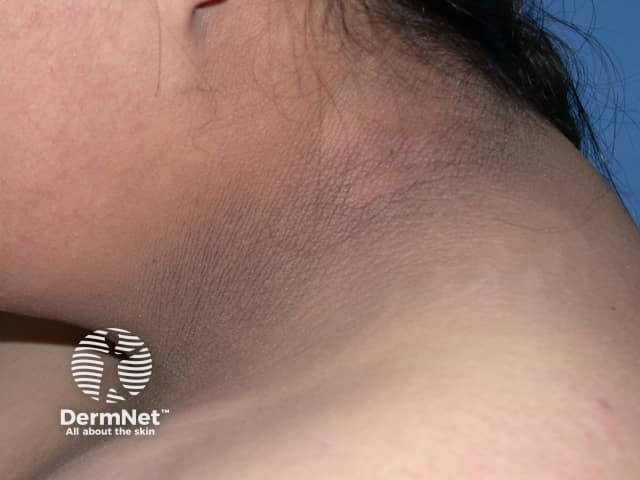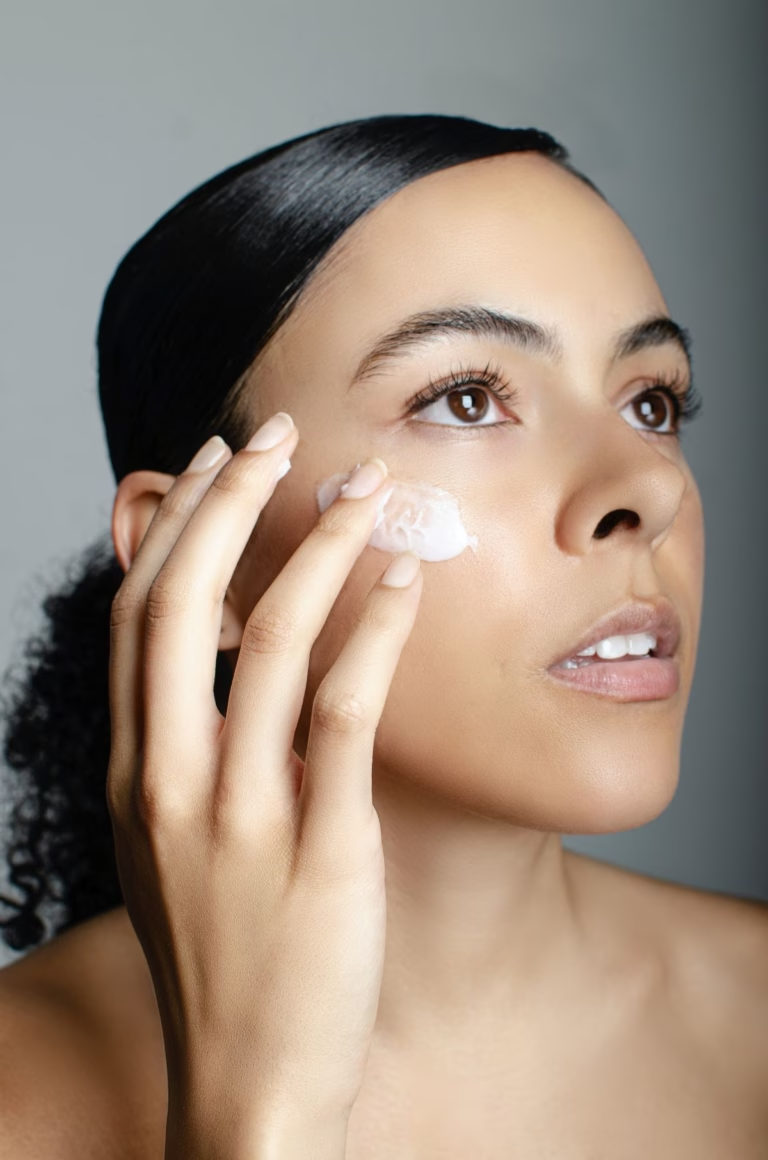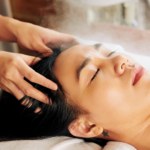If you’ve noticed dark patches on the back of your neck, you’re not alone. Whether it’s a subtle shadow or more prominent discoloration, darkened skin on the neck is a condition that many people experience at some point. But what exactly causes this “dark neck,” and more importantly, how can you treat it?
In this blog post, we’re going to break down the causes of dark neck skin, what you should keep an eye on, and the most effective treatments. Plus, we’ll address some frequently asked questions so you can walk away with the knowledge you need to take control of your skin’s health.
If you’re looking for a quick and detailed discussion about dark skin on the neck—its causes, prevention, and treatment—be sure to check out my video here:
🌿 Watch & Learn:
I’ve put together a quick, easy-to-follow video if you’d like a deeper dive into this topic.
✨ You’ll also find new weekly tips on stress-free skincare, hair wellness, and simple, science-backed beauty — don’t forget to subscribe here!
What is Acanthosis Nigricans?
When people refer to a “dark neck,” they’re usually talking about a condition called acanthosis nigricans. Acanthosis nigricans is a skin condition characterized by the darkening, thickening, and velvety texture of the skin, which often appears around the neck, but can also affect the armpits, groin, or other folds of the body.
The affected skin can range from light brown to almost black, depending on the severity. It’s more common in people with darker skin tones, but it can occur in anyone. While the appearance of acanthosis nigricans can be concerning, it’s often harmless in itself—though it can sometimes be a sign of an underlying health condition.

What Causes a Dark Neck?
There are several potential causes behind a dark neck. Here are the most common:
Insulin Resistance and Obesity
One of the most common causes of acanthosis nigricans is insulin resistance, often linked to obesity. When your body becomes resistant to insulin (a hormone that helps regulate sugar), your insulin levels rise, and that can trigger changes in your skin, leading to the dark patches that are characteristic of acanthosis nigricans. This is particularly noticeable in areas like the back of the neck, armpits, and groin.
Obesity itself can also directly contribute to this condition because excess fat, particularly around the abdomen, can exacerbate insulin resistance. If you’re carrying extra weight, especially abdominal fat, it’s more likely that you’ll experience changes in your skin like this.
Genetics
Sometimes, a dark neck can simply be inherited. If your family members have had this condition, you might be more likely to develop it as well. The genetic link can make it more common in certain families, and unfortunately, there’s not much you can do to prevent it in such cases.
Hormonal Changes
Hormonal fluctuations, particularly in conditions like polycystic ovary syndrome (PCOS) or during pregnancy, can also lead to the development of acanthosis nigricans. Hormones such as estrogen and progesterone, which fluctuate during pregnancy or menstruation, may trigger insulin resistance, leading to skin changes like dark patches on the neck.
Medications
Certain medications, like oral contraceptives, corticosteroids, or growth hormone treatments, can trigger this condition. If you’ve recently started a new medication and noticed dark patches on your skin, it’s worth checking with your doctor. They may be able to adjust your dosage or recommend an alternative.
Cancer
In rare cases, acanthosis nigricans can be a sign of an internal malignancy, particularly in the case of gastric cancer. If the condition develops suddenly and spreads rapidly, or if it’s accompanied by other concerning symptoms like unexplained weight loss, it’s important to seek medical attention right away. Early detection of underlying cancers can improve treatment outcomes significantly.
What to Look Out For: Is It Just a Dark Neck or Something More?
While acanthosis nigricans is typically harmless, there are certain signs that might warrant a closer look. If you notice any of the following, it’s a good idea to talk to your doctor:
- Rapid onset: If the darkening occurs suddenly or is spreading quickly, it could indicate an underlying health issue, like an endocrine disorder or even cancer.
- Itching or irritation: If the dark patches are itchy, painful, or irritated, it’s best to get checked out, especially if other symptoms like weight loss or fatigue accompany them.
- Changes in the texture: If the skin becomes rough, thickened, or begins to feel more like velvet, it’s still likely acanthosis nigricans, but it’s always a good idea to get a diagnosis just in case.
Additional Red Flags to Consider
If you notice other symptoms accompanying your dark neck, such as significant weight gain or frequent urination, these could be signs of insulin resistance or diabetes. It’s also important to monitor for severe fatigue or blurry vision, which can be linked to blood sugar issues. If you’re experiencing these symptoms alongside the dark patches on your neck, don’t hesitate to schedule an appointment with your healthcare provider.
How to Treat a Dark Neck: Solutions and Tips
While there isn’t a one-size-fits-all treatment for acanthosis nigricans, the good news is that with the right approach, you can improve the appearance of your skin. Here are some treatment options and tips to help you manage it:
Weight Management
Since insulin resistance and obesity are common causes of acanthosis nigricans, losing weight can often improve the condition. This doesn’t mean you have to undergo drastic weight loss, but a balanced diet and regular exercise can go a long way in helping reduce insulin levels and improving skin appearance.
If you struggle with weight loss, it might be helpful to consult a nutritionist or fitness expert who can help you develop a sustainable plan tailored to your needs. A healthy, balanced approach will improve both your skin and your overall health.
Topical Treatments
There are topical treatments that can help lighten the dark patches on your neck. Ingredients like retinoids, hydroquinone, or alpha hydroxy acids (AHAs) are commonly used to treat skin discoloration. A dermatologist can recommend the best products based on your skin type.
While these treatments can improve the appearance of your skin, they work best when paired with lifestyle changes like weight management and dietary adjustments. Be sure to use sunscreen regularly, as some of these treatments can make your skin more sensitive to the sun.
Lifestyle Changes
Incorporating a healthy lifestyle can help reduce the risk factors associated with insulin resistance. Eating a balanced diet rich in whole foods, avoiding processed sugars, and getting regular exercise can all help your skin—and your body—stay healthier.
Prescription Medications
In some cases, your doctor may prescribe medications to address insulin resistance or hormone imbalances. This could include oral medications like metformin, which helps manage insulin levels, or hormone therapies to address conditions like PCOS. Treating the underlying cause of acanthosis nigricans often results in significant improvement in the condition.

Laser Treatment or Chemical Peels
For more severe cases, treatments like laser therapy or chemical peels can help remove the top layer of darkened skin. These treatments are typically performed by a dermatologist and may provide faster, more visible results. However, they should be seen as a supplement to lifestyle changes rather than a standalone solution.
FAQ’s About Dark Neck
Q: Is acanthosis nigricans a sign of diabetes?
A: It can be associated with diabetes, particularly if you have insulin resistance or high blood sugar. However, it’s not a definitive sign of diabetes. If you’re concerned about your risk for diabetes, speak to your doctor about getting tested for it.
Q: Can dark skin on the neck go away on its own? H3
A: Sometimes, if the underlying cause is addressed (like managing weight or treating insulin resistance), the dark patches may lighten over time. However, it’s important to treat the root cause, so the discoloration doesn’t return.
Q: Is there a way to prevent a dark neck from forming?
A: Preventing acanthosis nigricans is all about maintaining a healthy lifestyle. Eating a balanced diet, managing your weight, exercising regularly, and taking care of your skin can help prevent it from developing.
Q: Can I use home remedies to treat a dark neck?
A: While some natural remedies, like aloe vera, may help soothe the skin, they’re unlikely to treat acanthosis nigricans on their own. If you have concerns about your skin, it’s best to consult with a dermatologist for more effective treatments.
Stay in the Know. Subscribe.








